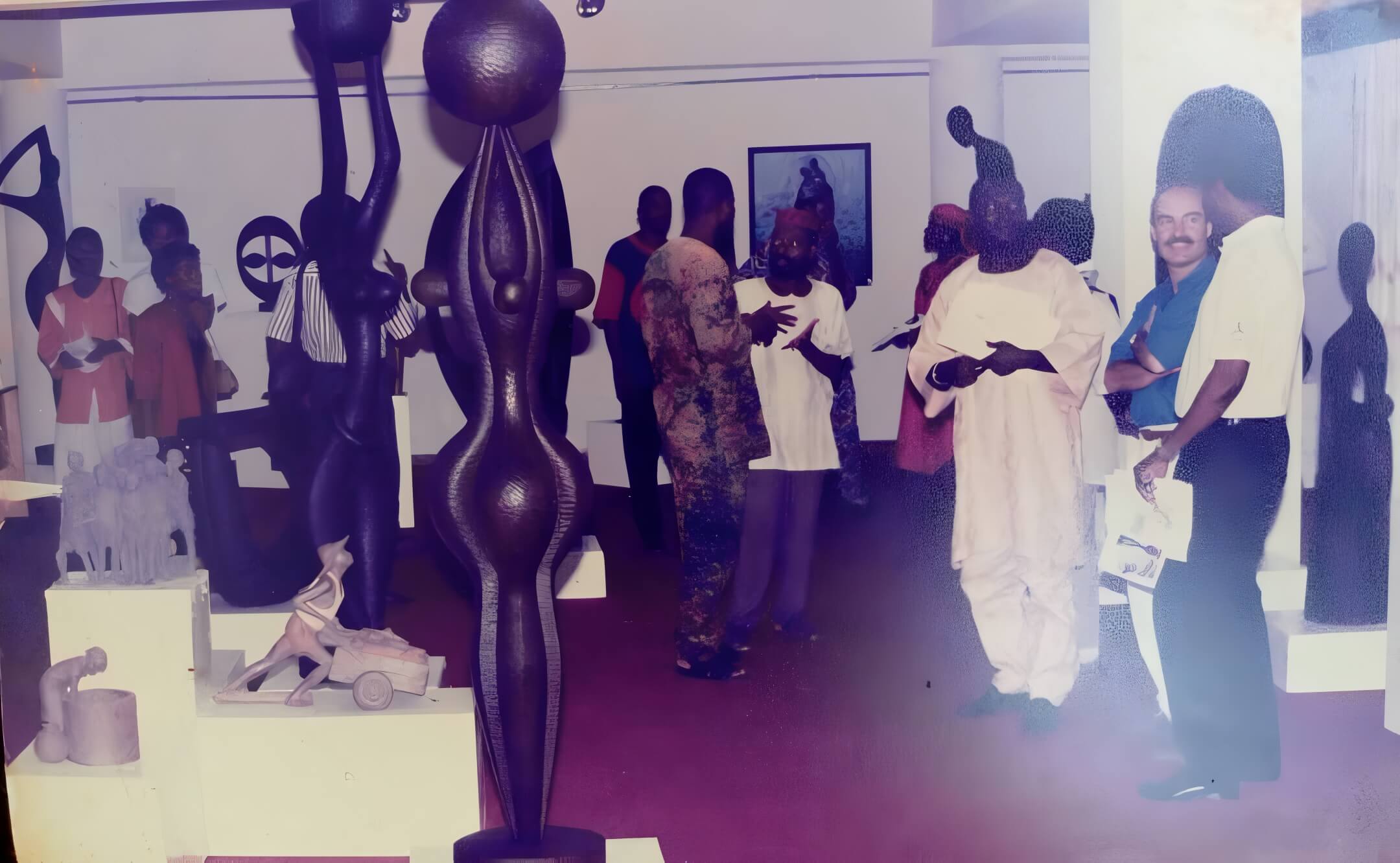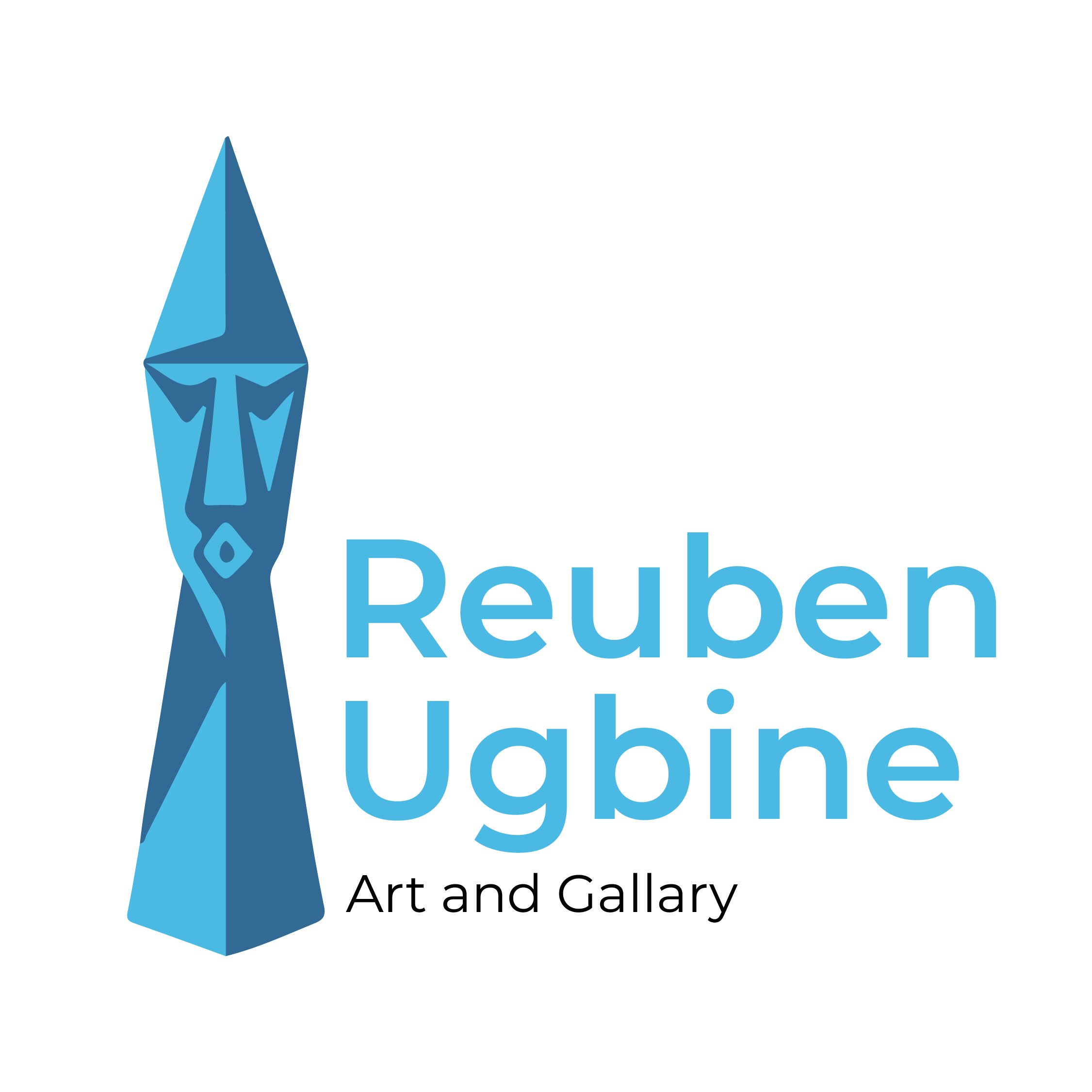Foundation
About us

The Reuben Ugbine Foundation (RUF) was established to honour the life, work, and vision of Reuben Ugbine (1956–2021), one of Nigeria’s most remarkable sculptors, painters, and educators. Known for his mastery of figurative terracotta and monumental wood carvings, Ugbine carved a distinctive path in African art, blending tradition with contemporary expression. The Foundation seeks to preserve his legacy, promote Nigerian art, and inspire future generations through education, research, and cultural exchange.
A Life Dedicated to Art
Born on November 24, 1956, in Anponya, Ghana, to Nigerian parents, Ugbine’s artistic roots took hold at Warri Secondary School, where his interest in wood carving first flourished. He went on to study at Auchi Polytechnic, graduating with distinction in 1976, and later at the Yaba College of Technology, Lagos, where he received a Higher National Diploma in Sculpture in 1979. His exceptional skill earned him the Principal’s Prize for Best Student, marking him as a rising star in Nigerian art.
Between 1976 and 1987, Ugbine served as an instructor, cultural officer, and lecturer at Auchi Polytechnic, shaping young talents while refining his own practice. In 1990, he founded Creative Hands in Benin City, a hub dedicated to sculpture and creative experimentation. Over the years, his works featured in major solo and group exhibitions across Nigeria and internationally, including Lebanon, Germany, Netherlands, South Africa, Ghana, and London, earning him critical acclaim and recognition.
Artistic Philosophy and Style
Reuben Ugbine’s work is celebrated for its deep cultural grounding and its ability to tell visual stories rooted in Nigerian traditions and everyday life. In 1982, he pioneered his signature style of figurative terracotta, portraying themes of costume, identity, and conditioned human behavior with subtle narrative detail. His wood carvings, often in figurative or mask-like forms, displayed a command of scale, texture, and symbolism, while his paintings revealed a sensitivity to spirituality, cultural heritage, and the human condition.
His art was never just about form but also about philosophy—bridging the old with the new, the spiritual with the material, and the individual with the collective. This unique blend positioned him as a key figure in Nigeria’s modern art movement.
Our Mission
The Foundation builds on this legacy through a threefold mission:
Preservation and Documentation
Safeguard Ugbine’s body of work through catalogues, archives, and research.
Protect his intellectual and cultural contributions for future generations.
Ensure global recognition of his role in Nigerian and African art history.
Education and Public Engagement
Organize exhibitions, workshops, lectures, and symposiums that foster deeper understanding of Ugbine’s art and Nigerian visual traditions.
Run scholarship schemes for students in leading Nigerian institutions, encouraging excellence in fine arts and cultural studies.
Support publications and academic research on Nigerian art and culture.
Cross-Cultural Exchange and Innovation
Create opportunities for residencies and collaborations between Nigerian and international artists, curators, and designers.
Nurture mentorship networks and projects that spark new ideas, encourage experimentation, and expand Africa’s creative voice globally.
Our Vision
Through its programmes, the Reuben Ugbine Foundation seeks not only to preserve his legacy but also to expand the possibilities of African art on the global stage. Rooted in Nigerian culture, yet outward-looking and experimental, the Foundation is committed to bridging tradition and modernity, heritage and innovation.
Located within the creative spirit of Ugbine’s practice, the Foundation is envisioned as a space of reflection, research, and renewal—where the artist’s philosophy continues to live, inspire, and evolve. By championing education, exchange, and public engagement, the Foundation ensures that Reuben Ugbine’s life work remains a guiding force for generations of artists, scholars, and cultural enthusiasts in Nigeria, Africa, and beyond.
